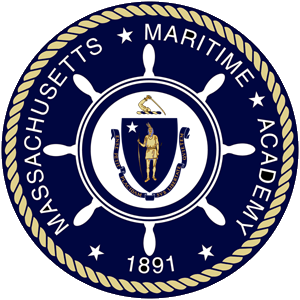OICEW Task 9.1.A
Overhaul a centrifugal pump
MMA Method
In order to satisfy NVIC 17-14 Task 9.1.A , MMA students must:
- Successfully complete MMA Assessment OICEW-8-2A Centrifugal pump maintenance (mechanical seal)
- Successfully complete MMA Assessment OICEW-8E2B Centrifugal pump maintenance (packing)
NVIC Method
See NVIC method.
| STCW Competence |
Knowledge, Understanding, and Proficiency |
|
Maintenance and repair of shipboard machinery and equipment
|
OICEW-C2 Safety measures for repair and maintenance, including the safe isolation of shipboard machinery and equipment
Basic mechanical knowledge and skills
Maintenance and repair, such as dismantling, adjustment and reassembling of machinery and equipment
Use of specialized tools and measuring instruments
Materials in construction of equipment
Machinery drawings and handbooks
Piping, hydraulic and pneumatic diagrams
|
| Condition | Behavior | Standard |
|---|
|
On a vessel of at least 1,000 HP, or in a laboratory or workshop,
|
the candidate overhauls a centrifugal pump.
All
The assessment is required for all OICEW endorsements regardless of any limitations for propulsion mode and/or vessel equipment.
|
The candidate:
Isolates the item to be repaired; Selects the proper tools and materials for repair; Ensures hoist or other lifting device necessary to support pump body is of correct specification and hooked up properly; Uses lockout/tagout procedures to isolate motor from panel; Marks alignment markings on the two halves of the coupling flanges and then removes the coupling bolts; Shuts suction and discharge valves; Cracks open flanges to drain water out; Removes pump cover, jacking up if necessary; Lifts out pump shaft and impeller; Dismantles the impeller, liner and removes the wearing rings; Removes the gland packing or seal; Inspects pump shaft and casing for erosion, pitting and wear; Rectifies defects with brass putty or other method if required; Replaces excess worn out parts; Checks wear ring clearance, general practice being to replace with new rings; Checks shaft trueness, removes sleeve from shaft, replaces sleeve with ‘O’ ring (if fitted); Checks key, key slots, nuts and threads for good order; Assembles all pump parts and tests for free rotation; Aligns and tightens coupling; Conducts a test run of the pump; and Takes proper action to prevent safety and pollution violations.
|
